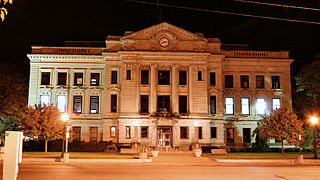
Fast, affordable Internet access for all.


Auburn Essential Service (AES) is one of those networks that has been serving the community for years with a steady presence and a strong commitment to the community. This week, Christopher talks with AES General Manager Chris Schweitzer about their fiber optic network, how they're innovating, and their recipe for consistent growth.
AES began with fiber infrastructure for their electric utility. They entered the broadband business first for municipal facilities, and later for businesses when the incumbent providers couldn't deliver necessary connectivity to one of the city's prominent employers. The company was ready to relocate until AES stepped in. Rather than face the economic impact of substantial job losses, AES connected the company and never looked back.
That was in the early 2000s and now AES offers Internet access to large segments of residents and businesses. Christopher and his guest talk about the way AES has taken a deliberate approach to expanding the network citywide and how they're implementing new technologies as they refresh the infrastructure. They discuss the network’s financial health (hint: it’s doing great) and how AES seeks grant funding to aid in further expansion.
Chris describes the new partnership that AES and nearby Garrett, Indiana, have developed to bring fiber broadband to the residents in the small community of about 6,300 people. The utility has a philosophy that other munis also embrace — straightforward pricing and customer-centered services — that have helped drive their success in the residential market.
Check out our first interview with Chris back in 2013, when he joined us for episode 77.
This show is 29 minutes long and can be played on this page or via Apple Podcasts or the tool of your choice using this feed.
Transcript below.
We want your feedback and suggestions for the show-please e-mail us or leave a comment below.
Listen to other episodes here or view all episodes in our index. See other podcasts from the Institute for Local Self-Reliance here.
Thanks to Arne Huseby for the music. The song is Warm Duck Shuffle and is licensed under a Creative Commons Attribution (3.0) license.
It’s no small feat to plan, deploy, and operate a municipal citywide Fiber-to-the-Home (FTTH) network, but communities are doing it. We’ve put together a Citywide Municipal FTTH Networks list and a map, with quick facts at your fingertips. If your community is considering such an investment, this list can offer a starting point on discovering similarly situated locations to study.
The list is divided by state and each state heading offers a description of any barriers that exist and a link to the statute in question. Under each community, we also included relevant links such as to the provider’s website, coverage on MuniNetworks.org, and reports or resources about the network.
We used four basic criteria to put a community on our list and map:
Share the list far and wide and if you know of a community network that meets our criteria that we missed, please let us know. Contact H. Trostle at htrostle@ilsr.org to suggest additions.
In 1985, Auburn Electric became one of the first communities in the midwest to deploy fiber. At the time, the purpose was to improve electric and voice systems substation communications within the municipal utility. That investment laid the foundation for a municipal network that now encourages economic development and saves public dollars while enhancing services.
Auburn expanded its fiber network beyond electric systems in 1998. The utility began using the network to serve city and county government operations. It is not well known, but Auburn offered gigabit service to its public sector customers way back in 1998.
The benefits from the deployment prompted community leaders to develop an Information Technology Master Plan in 1998 that would answer the question of what other ways the fiber could serve the community? As part of the Master Plan, Auburn leaders collected information from other communities that were capitalizing on their own local fiber. While Auburn made no immediate plans, they kept an open mind, waiting until the time was right.
In 2004, Cooper Tire and Rubber (now Cooper Standard) was about to be sold from its parent company. The $1.6 billion auto component manufacturer needed a data center but bandwidth was insufficient and inconsistent in Auburn. Cooper considered leaving because the incumbents, Mediacom and AT&T, could not or would not provide the broadband capacity the company needed. If Cooper left town, an estimated $7 million in wages and benefits from 75 high-paying tech jobs would also leave. At the time, Auburn was home to 12,500 people.

According to Schweitzer, the City tried to persuade the telephone company to find a solution with Cooper but the two could not reach an agreement. Rather than lose Cooper, the City of Auburn stepped in to fill the connectivity gap in 2005.
In a 2007 interview with Public Power magazine, Schweitzer noted advantages in Auburn that facilitated the project:
